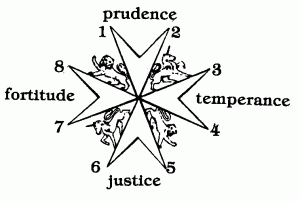“Do first, think later”, these golden words seem to be the precise summary depicting the overall figure of a twenty-first young lady, Najwa Abdullah Sungkar, as she enthusiastically quoted in the middle of our conversation last Tuesday, March, 01 2011. That statement might sound controversial for most people, but Sungkar has her best way to decode it into a well-printed sheet of concepts.
Dreaming to be an excellent news anchor in the future, Sungkar has demonstrated an incredible passion in journalism. For her, it is a dynamic, challenging, and skillful work which conform her character. In accordance with, this profession will also develop her personality since she is required to be objective, brave, confident, and mature. News anchors stand up as a passion which completes her seeking for satisfaction while it reversely enhances self qualification of her as an individual.
Holding position as a reporter in her campus organization, Sungkar shows a strong commitment to her profession. She carries on responsibilities and integration. The responsibilities include self improvement in many aspects. “Journalists or news anchors are those who consume a lot of knowledge and information and have high skepticism towards the validation of them. Thus, a news anchor could maintain her/his critical thinking and objectivity,” she said. Integration takes into account a strong dedication and determination to uphold the truth upon everything. She believes that both aspects are the fundamental assets for a high-qualified journalist. Without responsibility and integration, a news-digging profession would only contain a meaningless notion.
Troubles always come to follow during her experience being a reporter. However, Sungkar always shifts her focus on trouble to be a challenge of life. She maintains a professional figure. For example, she was assigned to do news coverage on Sandy Sandoro’s album launching once heavy rain and stuck train came to hit. Despite of those threats, she was determined to finish her duty without being paid for a single penny.
“It has become my prominent compass that people should do first and think later. If you keep your fear, you procrastinate to discover something. It means that you just pile things up without knowing what might wait you ahead. Troubles and difficulties are the best exercises to produce a well-trained people,” she said.
Sungkar has been registered as a English Studies student in University of Indonesia and been currently sitting in her third year class. She has become a reporter for a campus radio in this university called RTC UI for the last two years during which she has achieved quite excellent track record in her news coverage. Besides internal events in University of Indonesia, she has interviewed some popular public figures such as Cinta Laura, The Changcuters, The Groove, and so forth.
To accomplish her life time career as a news anchor, she actively joins several journalistic training and seminars. She is also the active members of ISAFIS, Indonesian Student Association for International Studies, in which she holds on position of news letter editor. It helps her to develop reporting skill, to extend networking, and to enlarge insight view and knowledge.
As she idolizes Najwa Shihab, a Metro TV news anchor, her ideal picture of future is to work with that TV station. After graduating from university, she intends to apply for news production team there. She hopes that it could be such a stepping stone to achieve her eternal wish to be a news anchor.
“Hardship and pain would never cease to exist. I believe that failure, defeat, and frustration are parts of human’s life so that there is no use to avoid them. Do first, think later. You would get one step closer to what you have dreamt and earn much more than what you expected,” she said in the closing of our conversation.










